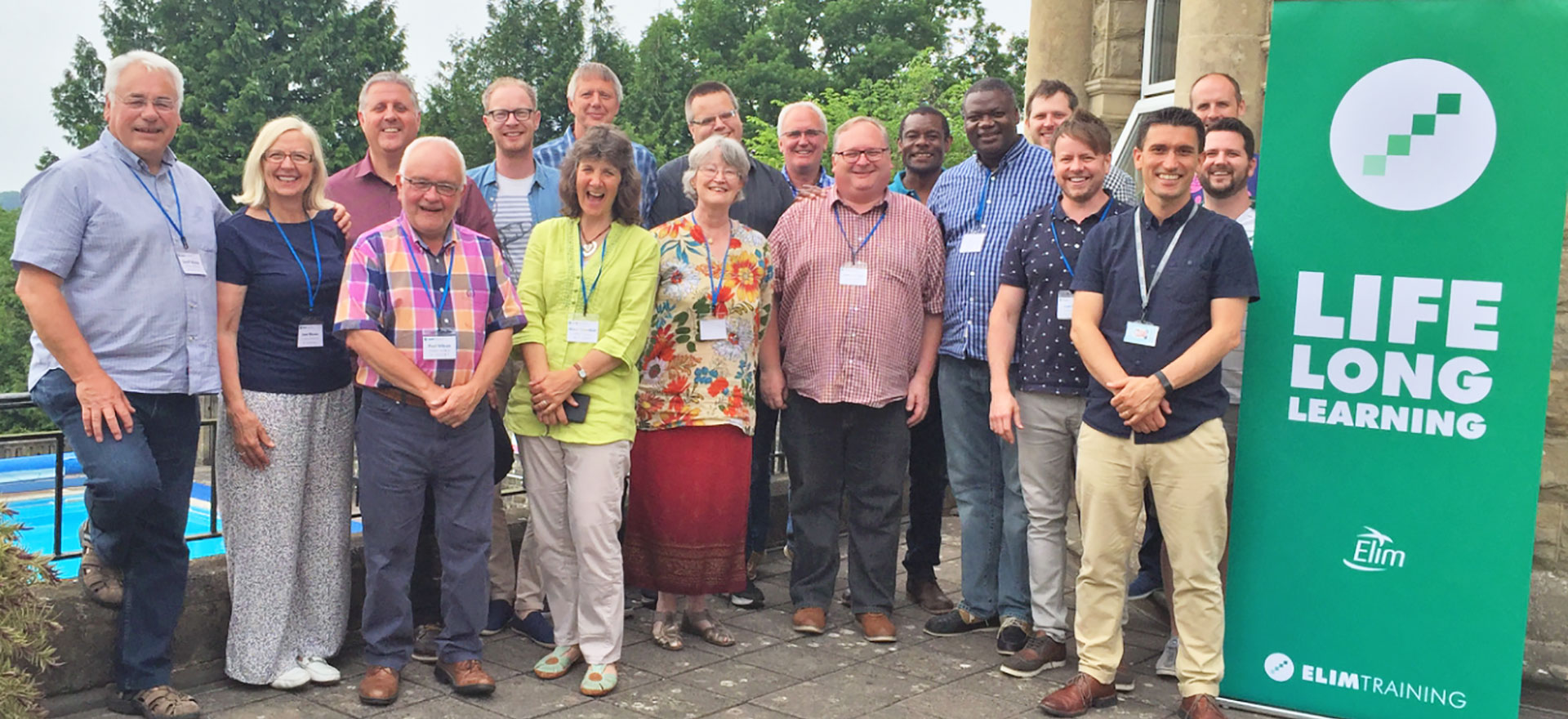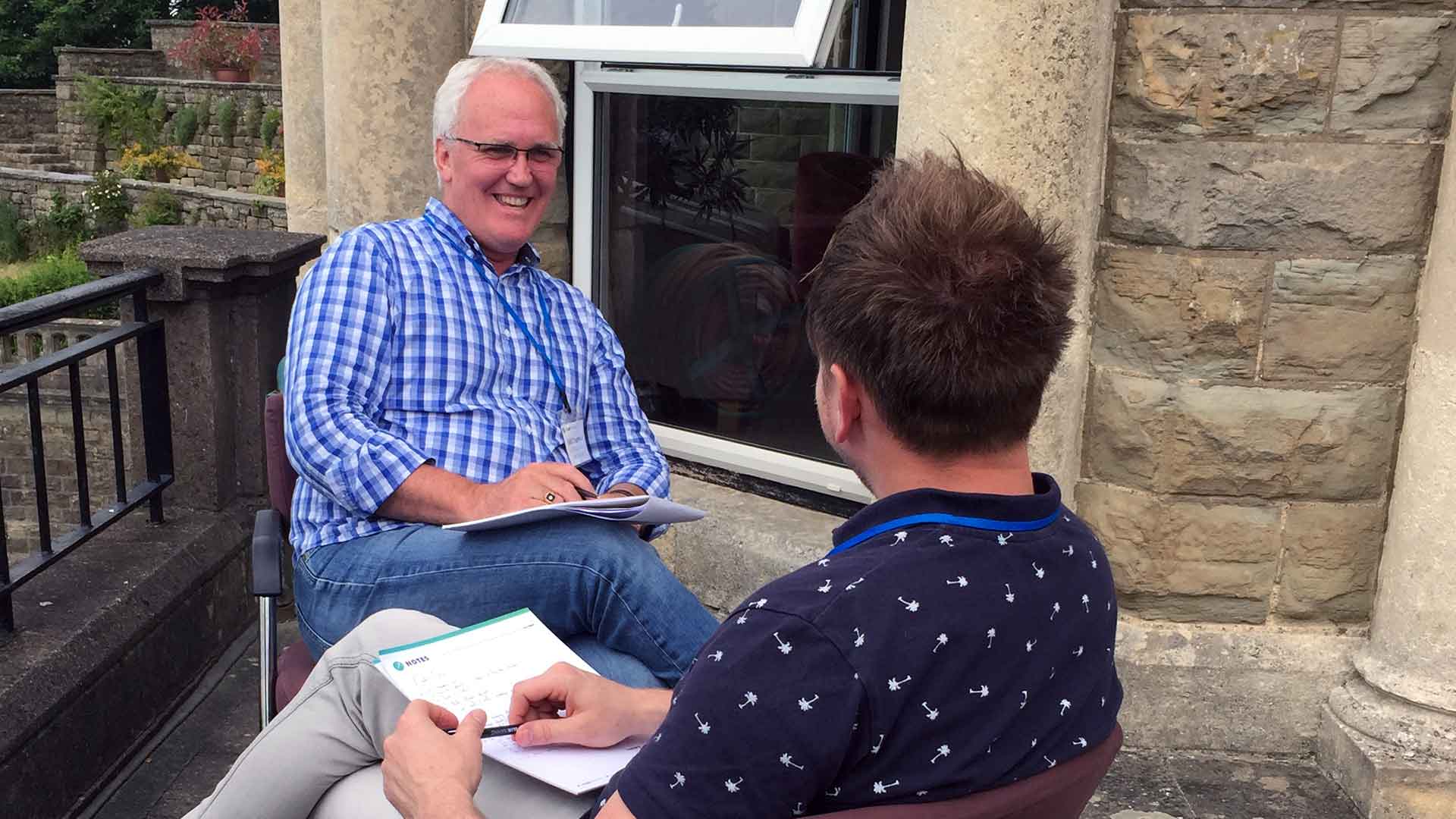
What did 3 Elim leaders learn through the Coaching Academy?
Director of Training, Dave Newton talks to three Elim leaders about the impact the Coaching Academy had on their life and ministry.
With the return of our hugely successful Coaching Academy in October 2018, we thought it would be great to get some of our past delegates together to review how this has impacted them personally and in their ministry with Elim and beyond. Stuart Blount (Elim Director of Ministry), Leanne Mallett (Aspire) and Sam Blake (Elim Sound) have all completed the year-long programme.
You have all taken part in our Coaching Academy over the last two years. How has it impacted your life since?
Stuart: The Coaching Academy was a great introduction to some helpful principles and practice in terms of coaching. Even as a seasoned leader I found the teaching and discussions prompted me to think about 'how' I coached and mentored developing leaders, especially in terms of listening skills and drawing the best out of each person I coach as a crucial goal.
Leanne: The Coaching Academy impacted me in so many ways. Aside from teaching me how to mentor/coach others using many different coaching styles, it also helped me understand my personality. As part of the Coaching Academy there is a section on understanding your style and personality and as leaders, we all lead differently and have our own strengths. Understanding how I work and how others work has really helped me to realise that many times the things we feel are our weaknesses can so often be our strengths.
Sam: The Coaching Academy gave a good overview and introduction to coaching as a tool and as something I could personally benefit from. At the time of doing the course, I had experienced and used elements of coaching but hadn't fully understood its potential and impact on both my life and others.
Leanne: It taught me about the different mentoring styles not just in 1-2-1 sessions, but even in everyday life when people approach you wanting advice. Often, asking the right sort of questions is key to helping the person think for themselves and get to a solution or decision rather than trying to solve it for them. I'm learning to apply what I have learnt in the everyday life of talking with women, not just in my Aspire role but also as a pastor's wife.
Sam: We offer 1-2-1 coaching to each student, as part of the School of Worship which has been oversubscribed for the past three years, meaning I have a lot of students to practise on! Many students have seen positive change as a direct result of their coaching session and it has contributed to the overall success of School of Worship.
It has also strengthened my approach to discipleship of others as I ask significantly more questions now than I used to! The Coaching Academy helped me realise the power of great questions and the importance of listening to others. In my personal life, I have sought out a coach who I meet with six times a year and this has really helped me focus and achieve more than I would have achieved on my own.
Stuart: I agree. I also benefited from finding a coach for myself from outside of our Elim context who has helped me so much to develop at a new season of my life as a leader.

How does this directly affect you in your various roles?
Sam: I am a proactive person and enjoy seeing the positive action that is generated from a coaching conversation. Coaching has personally helped me to become more self-aware and to better assess, establish and achieve ambitious goals in my life. The introduction of coaching has also helped me move others towards action and toward becoming more self-reliant.
Leanne: I fully see the purpose of coaching and how it can benefit others. I not only feel better equipped personally to coach or mentor, but I find myself encouraging others to find themselves a coach. Linking women to possible coaches would be something I'd love Aspire to be more involved in for the future.
Stuart: My role as Director of Ministry involves great opportunity to spend meaningful time with leaders at all stages of life and leadership and the Academy sharped my focus on the importance of how I spend that time with them.
The personal development of our leaders has become a much greater priority in my role and especially for those who are ministers in training in Elim. If we can establish these principles at the beginning of someone's leadership journey, I believe it will bring dramatic benefits for their progress and fruitfulness.
Sam: Yes, when I am looking to draw the strengths out of my team, coaching helps me listen to where our capacity and motivation is. We can then work with, not against, the rhythm of the team.
Become an effective leader and coach
The Elim Training Coaching Academy seeks to train existing Elim leaders with the necessary skills to inspire, challenge, and journey alongside other leaders in the Elim Movement in order help them achieve all that God has intended for them.
The Coaching Academy provides you with the biblical basis of coaching, explores definitions and case studies including the GROW model of The Coaching Process, how to ask good questions and ultimately equip you to be a better leader as well as coach others.
Find out more at elim.training/coaching
Enjoy this article? Don't forget to share